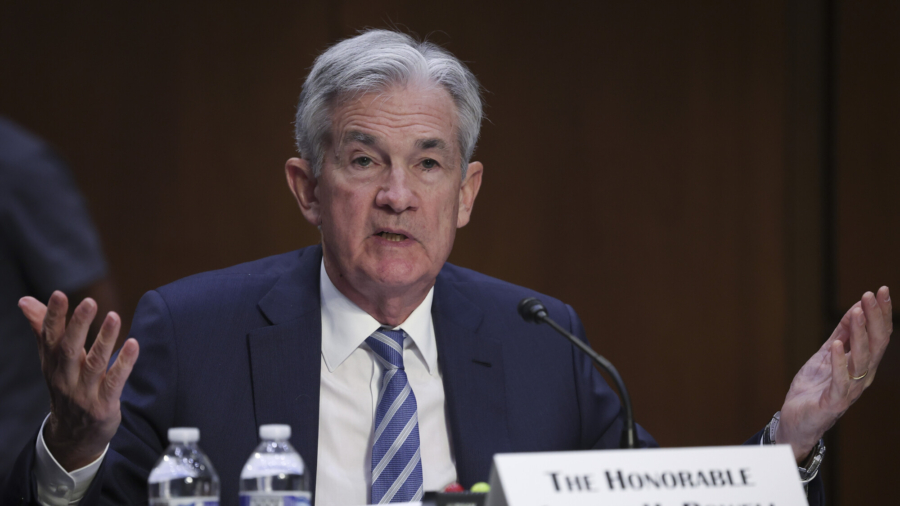America’s banks are resilient enough to withstand even a “severe” recession with unemployment soaring to 10 percent, the real estate market melting 40 percent, and stocks sinking 55 percent, the Federal Reserve said.
The Fed put dozens of America’s biggest banks under a “stress test” exercise to evaluate their resilience and ability to support a potential economic crash.
The stress scenario the central bank chose to put banks under in this year’s test was tougher than last year’s, the Fed said in a statement, with U.S. financial institutions getting a passing grade.
‘Severe Global Recession’
The hypothetical headwinds included a “severe” global recession with substantial stress on corporate debt markets and commercial real estate.
The tough conditions the Fed chose included a rise in the unemployment level to 10 percent, with sharp drops in asset prices—a near 40 percent plunge in commercial real estate and 55 percent stock meltdown.
“All banks tested remained above their minimum capital requirements, despite total projected losses of $612 billion,” the Fed said of its findings.
Hypothetical loan losses amounted to $450 billion and $100 billion in trading and counterparty losses, with this year’s more stringent test conditions leading to $50 billion more in big bank losses compared to last year.
“Large banks have sufficient capital to absorb more than $600 billion in losses and continue lending to households and businesses under stressful conditions,” the Fed said in the report (pdf), which chalked up their resilience largely to robust capital buffers built up since the 2008 financial crisis.
The “severe” stress conditions the Fed put the banks under saw their aggregate common equity capital ratio—a cushion against losses—falling by 2.7 percentage points from the actual 12.4 percent in the fourth quarter of 2021 down to 9.7 percent, which is around twice the minimum requirement.
‘Unconditional’ Commitment to Fighting Inflation
The bank test comes as the Fed has embarked on a monetary tightening cycle to tame soaring inflation, which has been running at a 40-year high.
Fed Chair Jerome Powell has vowed “unconditional” commitment to lowering price pressures even as he acknowledged sharply higher interest rates could push up unemployment.
While a recession is an outcome the Fed will try to avert as it tightens financial conditions and cools demand, Powell said a contraction was “certainly possible.”
Grilled by lawmakers during two days of sessions before the Senate Banking Committee and the House Financial Services Committee, Powell acknowledged that the Fed lacks “precision tools” to target inflation and its blunt instruments could have an unwanted impact on joblessness.
“We don’t have precision tools,” he said, “so there is a risk that unemployment would move up, from what is historically a low level though. A labor market with 4.1 percent or 4.3 percent unemployment is still a very strong labor market.”
In May, the U.S. unemployment rate stood at 3.6 percent.
While Powell acknowledged the possibility of a recession, he said such an outcome is not a foregone conclusion, adding that he expects economic growth to pick up in the second half of this year.
A number of analysts, economists, and investment banks have, in recent weeks, boosted their predictions for the likelihood that the Fed’s fight against inflation would tip the U.S. economy into a recession.
From The Epoch Times


